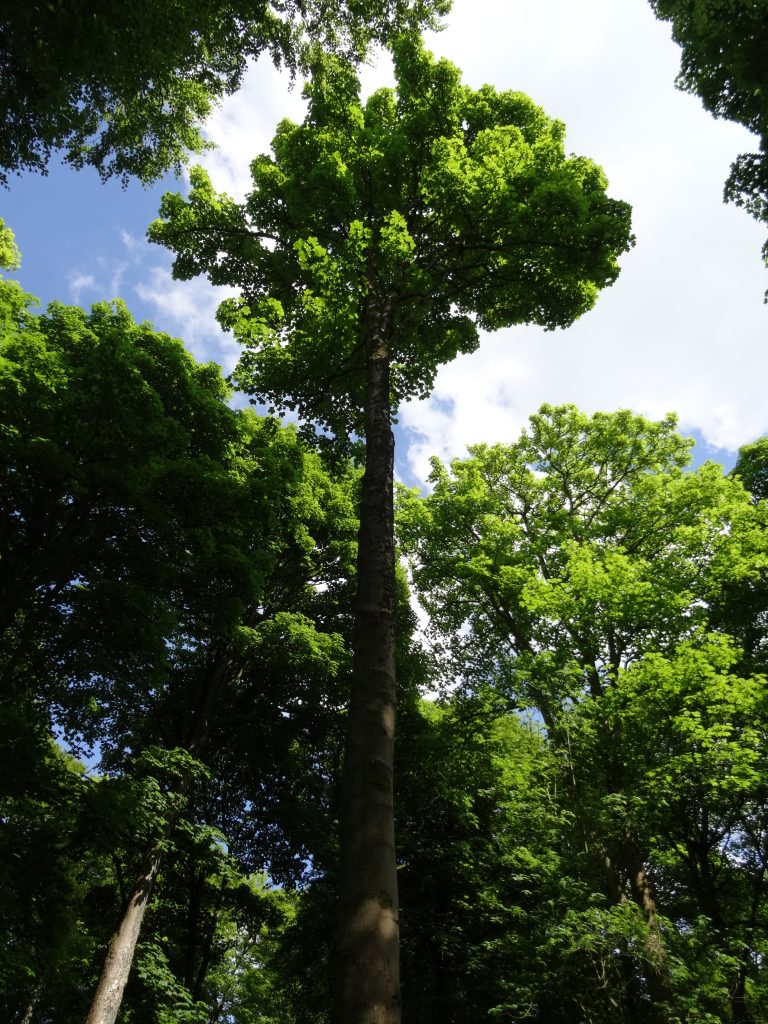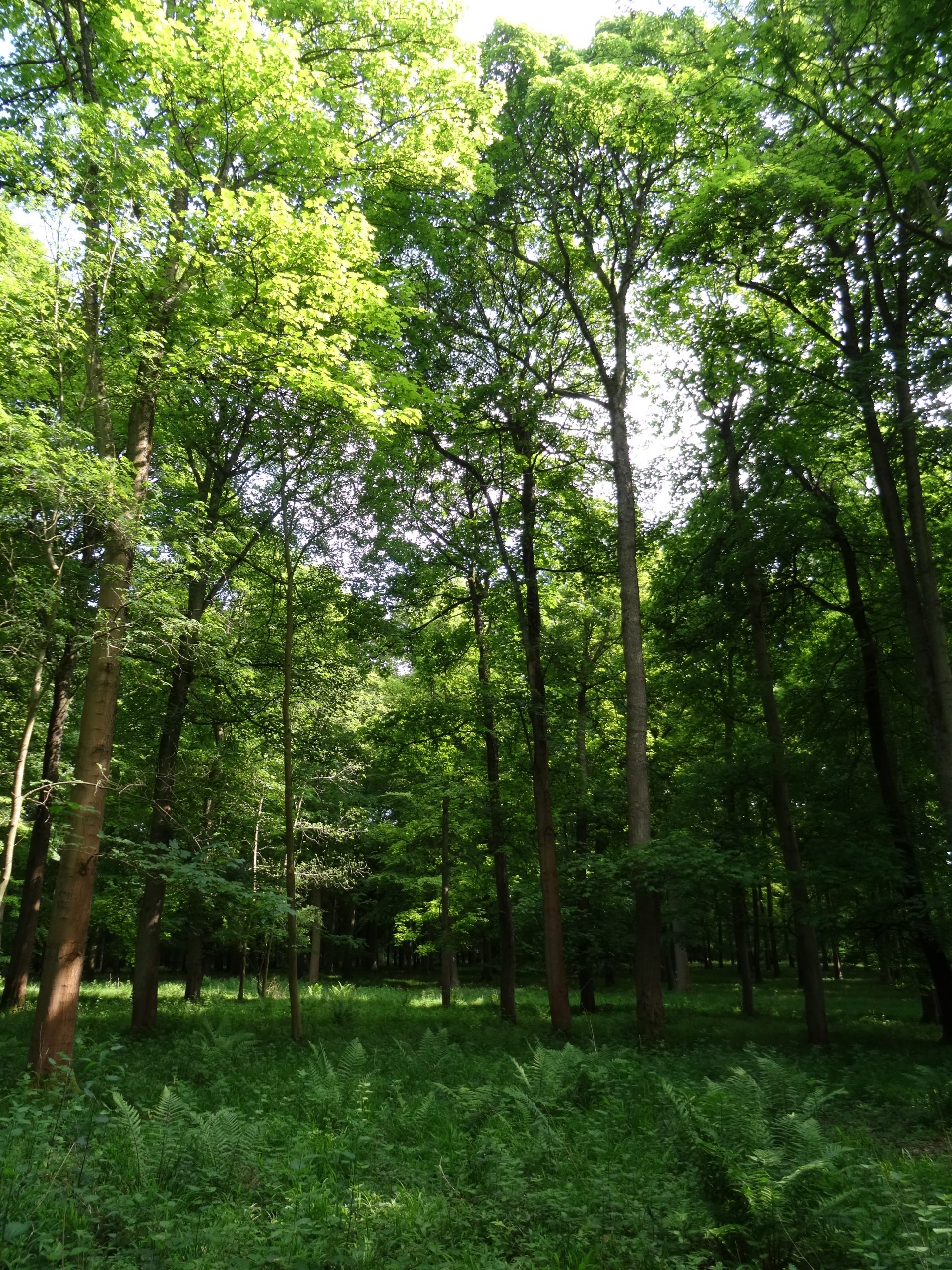As one of the fastest growing broadleaf species in the UK, producing a desirable white-coloured timber, Sycamore has considerable economic potential. Future Trees Trust seeks to increase the availability of improved material for those wanting to plant sycamore for timber and have established six clonal orchards currently producing qualified seed.
About sycamore
Sycamore (Acer pseudoplatanus L.) is a naturalised exotic species that grows well on a wide range of sites across Britain, usually as a minor component of mixed woodland. The time of introduction is uncertain, and it is currently thought to have arrived in Britain as late as the sixteenth century but has become well established in the last 200 years. Sycamore is a hardy species being tolerant of wind and salt-spray, late spring frosts, shade in earlier years and can also grow on sites contaminated with heavy metals. At present, it is threatened by no major pests or disease but is highly susceptible to damage by grey squirrel. It prefers cool, humid sites and can produce prolific amounts of seed, which often facilitates natural regeneration.
Sycamore has similar ecological requirements to ash (Fraxinus excelsior) and can support a high number of ash-associated species. As such, sycamore is considered as a potential replacement species in ash woodlands devastated by the fungal disease ash dieback. Sycamore hosts a wide range of lichen and aphid species, and the latter is an important food supply for many organisms. It has acquired a reputation for being an invasive species and this may be because it thrives where there has been disturbance. However, evidence suggests that it cannot dominate woodlands for long periods as it has difficulty regenerating under its own dense canopy.

A sycamore plus tree, the starting point of any tree improvement programme
We’re delighted to continue our support for the Future Trees Trust with the second year of our sponsorship of this sycamore progeny trial. The progress report from year one is very encouraging. Watching how the FTT carried out the seed harvesting phase has been fascinating, and we’re following the next stages of this important research work with interest. It is vital to look forward and think in multi-generational timescales when tree-planting for timber, and supporting this research work is a step towards improved understanding of how to really put the right tree in the right place.
View the December 2021 Update:
Why sycamore is important
This naturalized exotic species has considerable economic potential as it is one of the fastest growing broadleaves in the UK. It produces a desirable white-coloured timber with little discernible figure or grain. In addition, some individual trees exhibit wavy grain timber, which is prized for making musical instruments and for producing veneer. This is highly valued, but whether this characteristic is determined by the tree’s genetic composition or by environmental factors or both is not known. In plantations, sycamore attains the highest yield class of major British broadleaves and its timber can fetch the same price as oak (Quercus petraea and Q. robur) and beech (Fagus sylvatica).

Sycamore seed stand at Bathurst Estate, Gloucestershire registered as selected on the Forest Reproductive Material (FRM) register
Our achievements so far
Our research into sycamore improvement began in 2002 and has progressed well over the last two decades. We have identified over 200 plus trees across the British Isles and collected scions for grafting from 93 % of these. Grafts from these superior trees have been used to establish six clonal seed orchards in Great Britain and Ireland that are producing qualified seed available for forestry planting. In 2016 we established two small progeny trials to investigate the heritability of plus tree traits such as form, vigour and health.
Our current work
We are planning a large multi-site progeny trial to test the performance of at least 80 additional plus trees. Seed will be collected from the clonal seed orchards by individual mother tree, raised as cell grown planting stock and planted out in replicated field trials during winter 2022. We are actively looking for trial sites suitable for growing sycamore. If you would like to host a genetically diverse sycamore progeny trial, please get in touch. We are also funding research to re-evaluate provenance trials planted by Forest Research in the early 1990s, to investigate variation in adaptive traits in growing high quality sycamore.
A special thank you to Vastern Timber for supporting the Future Trees Trust sycamore breeding programme, helping to establish progeny trials.
Vastern Timber is the UK’s largest and most established hardwood sawmill and has been manufacturing British Timber Products, all from locally grown timber, for over 100 years. From British logs cut in our own sawmills we offer an extensive range of sawn hardwoods for joinery and furniture making, as well as oak beams, timber cladding and hardwood flooring for commercial and residential buildings.

